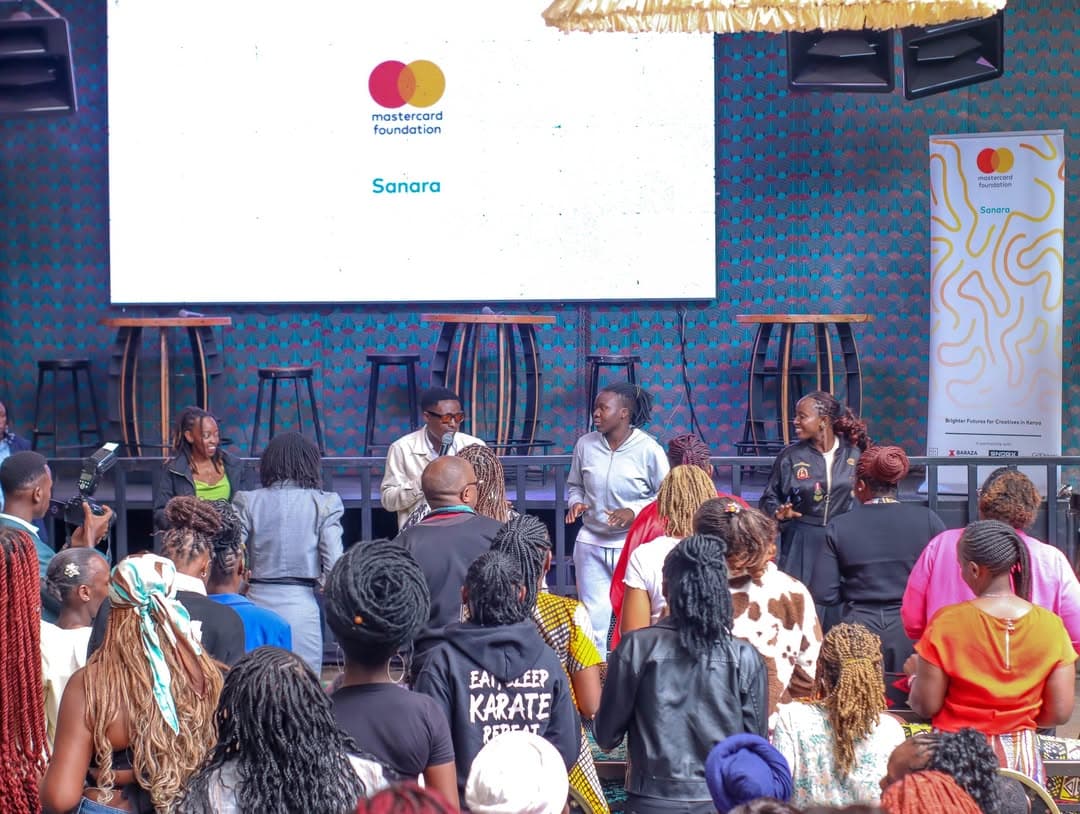We're loading the full news article for you. This includes the article content, images, author information, and related articles.
As Kenya’s creative sector emerges as a significant economic driver, a Nairobi-based programme is equipping women entrepreneurs with vital business acumen, tackling systemic barriers that have historically limited their ability to turn artistic talent into sustainable enterprises.

For many creative professionals in Kenya, raw talent is abundant but the pathway to commercial success is fraught with obstacles. This is the reality Suzanne, founder of Zanne Beauty, faced for two years. Operating in the informal beauty sector, she possessed the passion and skill of a makeup artist but lacked the foundational business knowledge to grow her venture. "I had the passion, but without the foundational understanding of how to run a business, progress felt painfully slow," she stated in a report dated Monday, 27th October 2025 EAT. Her story reflects a widespread challenge for women in Kenya’s burgeoning creative economy.
Systemic barriers, including limited access to finance, inadequate business training, and exclusion from influential networks, disproportionately affect female entrepreneurs. A study by Nation Africa on 3rd June 2025, highlighted that while nearly 70% of creative arts graduates in Kenya are women, less than 35% remain active in the sector five years after graduation, citing lack of funding and general exclusion as key reasons. This gap prevents a significant portion of the creative workforce from reaching its full economic potential.
Addressing this gap is the Sanara programme, an initiative designed to empower creatives by merging artistic skill with business strategy. The name itself, derived from the Swahili words for 'Sanaa' (arts) and 'Biashara' (business), encapsulates its mission. Launched as a partnership between the Mastercard Foundation and a consortium including HEVA Fund, SNDBX, Baraza Media Lab, and the GoDown Arts Center, Sanara provides structured training in business development, financial management, and marketing.
For participants like Suzanne, the programme was transformative. Expecting to merely refine her makeup skills, she instead gained a comprehensive business toolkit. "I applied hoping to improve my makeup skills, but I received so much more," she explained. The curriculum equipped her with the knowledge to formalise her business, Zanne Beauty, develop a coherent brand, and effectively market her services. This led to a remarkable turnaround, culminating in securing a dedicated workspace and achieving previously unimaginable revenue.
The success of initiatives like Sanara carries significant implications for Kenya's economy. The creative sector is a vital contributor to the nation's Gross Domestic Product (GDP), accounting for over KES 110 billion, or approximately 5% of GDP, according to reports from September and October 2025. Experts project this contribution could grow to 10-15% in the coming years, positioning the creative economy as a key engine for job creation and economic diversification.
However, this potential is constrained by challenges such as poor access to finance and a lack of formal business structures, which make it difficult for creatives to secure traditional bank loans. Many artists are forced to self-finance their projects, limiting their scale and sustainability. Programmes that formalise creative businesses and provide financial literacy are therefore critical. By empowering women, who are a majority in the sector but a minority in its formal echelons, these initiatives foster more inclusive growth. Suzanne’s expansion, which included launching a second venture, Keiko World, and employing two young women, demonstrates the tangible job-creation impact of upskilling a single entrepreneur.
While Sanara provides a potent model, the challenges it addresses are widespread. Women entrepreneurs in Kenya continue to face hurdles including discrimination, lack of collateral for loans, and the burden of multiple domestic and business duties. The informal nature of many creative enterprises further complicates access to formal credit and business development services.
Stakeholders increasingly recognise the need for systemic solutions. Financial institutions like NCBA have begun exploring models to use creative works, such as music catalogues, as collateral for loans. Meanwhile, government policies like the Kenya Youth Development Policy 2019 and initiatives such as the Ajira Digital Programme aim to build a more supportive ecosystem for young entrepreneurs, emphasizing digital skills and access to online markets. Suzanne’s own ambition reflects this forward-looking perspective; she envisions partnering with Sanara to expand her training programmes, creating a ripple effect of empowerment for other women aspiring to build sustainable careers from their creative talents.
Keep the conversation in one place—threads here stay linked to the story and in the forums.
Sign in to start a discussion
Start a conversation about this story and keep it linked here.
Other hot threads
E-sports and Gaming Community in Kenya
Active 9 months ago
The Role of Technology in Modern Agriculture (AgriTech)
Active 9 months ago
Popular Recreational Activities Across Counties
Active 9 months ago
Investing in Youth Sports Development Programs
Active 9 months ago